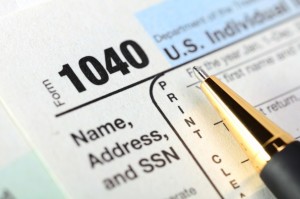Dear Liz: I have an IRA with over $100,000 at a discount brokerage. I had it in a target date fund. Due to market downturns, I got nervous and was convinced to put my investment into the brokerage’s portfolio advisory services with additional fees coming to $1,600 per year. In general, is it wise to change investments to these more professional services?
Answer: If professional management keeps you from bailing out of your investments when markets decline, then paying a higher fee may be justified. But the higher the fees you pay, the less money you can accumulate. For example, your IRA could grow to more than $600,000 over 30 years if you net a 6% return. If your fees are one percentage point higher, and you net just 5%, you’d end up with less than $450,000.
Some discount brokers, including Schwab, Fidelity and Vanguard, now offer a low-cost “robo” option that invests your money using computer algorithms. These robo options don’t offer the highly customized investment portfolios that some other services provide, but they come at a much lower cost — typically 0.3% to 0.4%. A few, including Vanguard and Betterment, offer access to financial advisors.
 Today’s top story: How credit use affects credit scores. Also in the news: Starting a business if you have student debt, how one couple crushed their debt, and how budgeting doesn’t have to suck if you make it a habit.
Today’s top story: How credit use affects credit scores. Also in the news: Starting a business if you have student debt, how one couple crushed their debt, and how budgeting doesn’t have to suck if you make it a habit. Today’s top story: 6 late-filing tax mistakes you need to avoid. Also in the news: Why paying taxes by credit card probably isn’t a good idea, collection agencies are getting another shot at your back taxes, and filing a tax extension to buy more time.
Today’s top story: 6 late-filing tax mistakes you need to avoid. Also in the news: Why paying taxes by credit card probably isn’t a good idea, collection agencies are getting another shot at your back taxes, and filing a tax extension to buy more time.  Today’s top story: Can’t refinance student loans? Try these tactics. Also in the news: 10-word answers to your biggest car insurance questions, 5 foods that raise blood pressure – and life insurance rates, and 5 ways to save on preparing your taxes.
Today’s top story: Can’t refinance student loans? Try these tactics. Also in the news: 10-word answers to your biggest car insurance questions, 5 foods that raise blood pressure – and life insurance rates, and 5 ways to save on preparing your taxes.  Today’s top story: There’s still time to make an IRA contribution for 2016. Also in the news: FAFSA tool outage, 4 money lies you might be telling yourself, and when a tax refund means bankruptcy.
Today’s top story: There’s still time to make an IRA contribution for 2016. Also in the news: FAFSA tool outage, 4 money lies you might be telling yourself, and when a tax refund means bankruptcy.